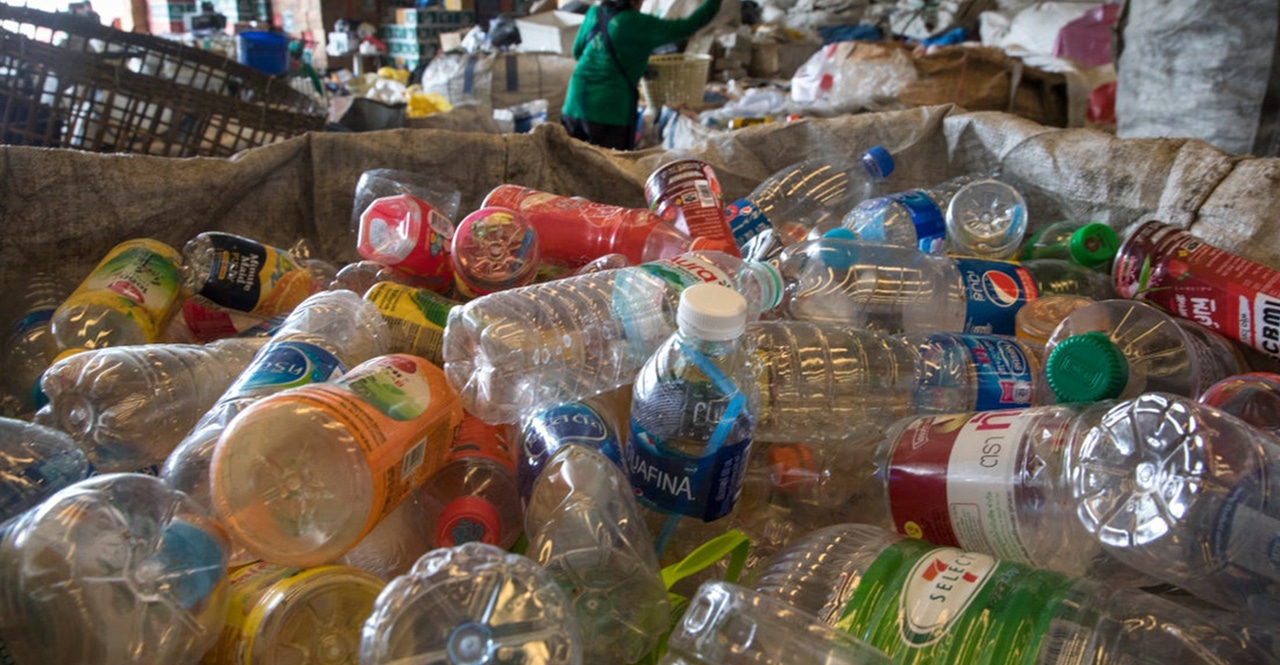A Look at the Plastic Waste Crisis in the Developing World

The Ocean Plastics Leadership Network (OPLN) recently hosted a webinar called “Environmental Intelligence: Deep Diving on the Plastic Waste Crisis in the Developing World" that featured Ian Rosenberger, CEO at First Mile and Day Owl, in conversation with OPLN Founder Dave Ford, two of our speakers from the Waste360 Sustainability Talks event.
Rosenberger shared how he ended up in the secondary-plastic markets in the developing world. He said that in 2010, around the time of the earthquake in Haiti, he realized he wanted to do something in the global south, and he wanted to be doing meaningful work. Rosenberger ended up spending two years in and around Port-Au-Prince, Haiti in the medical-relief field and came to understand how “we all want the same things — a roof over our heads, the ability to get up and go to work and have a purpose, for our kids to have a better life than we do.” He then came to see it was his job to be a “connector between communities that don’t have a voice and communities that do — and encourage the communities that do to drive resources into communities that don’t.” And, ultimately, “the backdrop to all those conversations and all that time was trash. It’s a defining issue of our time, and I wanted to find a way to connect those things.”
Rosenberger then spoke about how he went through the process of figuring out the best ways to truly help these communities. Through many conversations, he kept hearing that people wanted jobs, not handouts. So, he wanted to create jobs, and “this is the way the business was born.” But, not knowing “anything about anything,” Rosenberger Googled “what can you turn trash into” and came across the idea of fabric. With a few early samples, he then asked brands if they would be interested. Eventually Timberland and others said “yes.” In those first years of First Mile, “We learned a lot about human rights, building human rights frameworks…” And, “We now connect the biggest brands in the world with these communities and remove all of the barriers and risks to those brands engaging with those communities and pulling resources out of it.”
Ford asked Rosenberger about the “aggressive recycled materials goals” of today’s biggest companies and noted that, “they want this material; they just can’t quite figure out how to get it — and get it in a way that is socially moral.” Rosenberger talked about the “human-powered supply chain” and the importance of solving problems related to child labor and other such challenges. He also talked about the importance of showing these big brands what things are like on the ground in the developing world. He mentioned an example of partner Hewlett-Packard and how Ellen Jackowski (now Chief Sustainability & Social Impact Officer) spent time learning about the importance of using recycled materials in printer cartridges “and how we might be able to do that with materials from Haiti.” And, “to her immense credit, she came (to Haiti); she showed up and spent time there; listened; learned and took that message back to her team. We wish this type of leadership happened every single day.”
Rosenberger went on note that, “This is the decade; the next 10 years are going to dictate how the world is for our children.” He spoke about the growth rate of technologies and populations and how those things are contributing to the importance of the current moment.
View the full discussion here.
Listen to our NothingWasted! Podcast episodes featuring Ian Rosenberger, Dave Ford and Ellen Jackowski.
About the Author
You May Also Like




